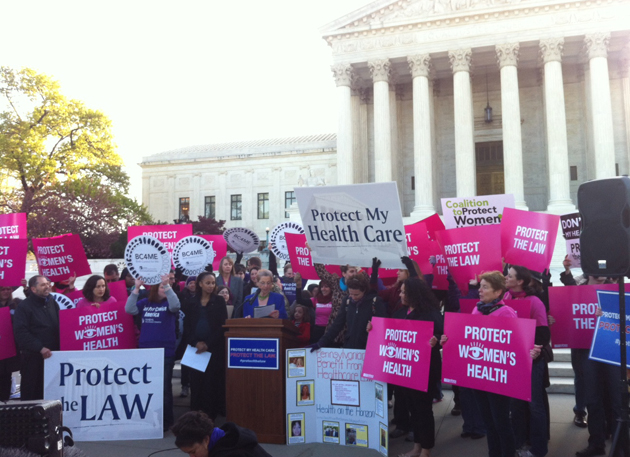In a surprise move in its decision to uphold the ‘Obamacare’ mandate, the Supreme Court declared that states may opt out of the law’s Medicaid expansion without losing all federal funds for the program.
“In the 47 year history of the program, there has never been a successful challenge to any of the Medicaid expansions, so this was rather unusual,” said Ron Pollack, director of the consumer group Families USA.
The decision is expected to at least slow down implementation of the new Medicaid provisions. If states refuse to participate en masse, it could lead to significantly fewer people than the projected 17 million being covered under the Medicaid expansion.
The Supreme Court held that the Medicaid expansion in itself constitutional. But it essentially decreed it a new program, which means states cannot be punished for turning it down. The court rejected the Obama administration’s argument that states must accept the expansion or risk losing all federal Medicaid funds.
“The practical effect is that it will make the Medicaid expansions go more slowly,” said Sara Rosenbaum, a professor of health law at George Washington University. She added that it may be left to future courts to determine which parts of the Medicaid expansion count as a new program and which parts are merely additions to the existing one.
Republican governors will face pressure to reject the Medicaid expansion or risk being accused by conservatives of willingly embracing a big part of ‘Obamacare.’ But there’s an incentive in the other direction; namely: a huge cash gift from the federal government, which covers the full cost of the first three years of expansion.
“It’s very easy for these Republican governors, pulled by the tea party, to say, ‘Oh we’re going to pull out,'” Sen. Chuck Schumer (D-NY) told reporters Thursday after the Suprme Court decision. “When they see what it does to pull out … they’re going to lose the incentives. They’re going to lose the dollars. They’re going to lose the new people covered. And their small businesses are going to lose the subsidies. I don’t think they’re going to be so eager to do that when they actually look at the benefits to the states in the Medicaid provisions of the bill.”
“It will be interesting to see what happens in the 26 states that challenged Obamacare,” said Adam Winkler, a professor at UCLA School of Law. “Will they go through with their threats of not expanding their own Medicaid coverage? Or will the promise of federal money persuade them to expand coverage?”
But even for the willing states, the ruling gives them more leverage with the Department of Health and Human Services before they opt in, a negotiating tool that Democratic governors may also want to take advantage of.
“I think that transcends party lines,” said Rosenbaum.
Neither the White House nor top Democrats expressed much concern that states would decide to opt out. “We’re not bothered at all with the decision in regard to Medicaid,” said House Minority Leader Nancy Pelosi. The view that it wouldn’t significantly disrupt coverage under the law was echoed by outside advocates of Medicaid and the expansion.
“I think the states are going to pick this up,” said Pollack. “It would be an act of fiscal malpractice for states to turn this down.”






